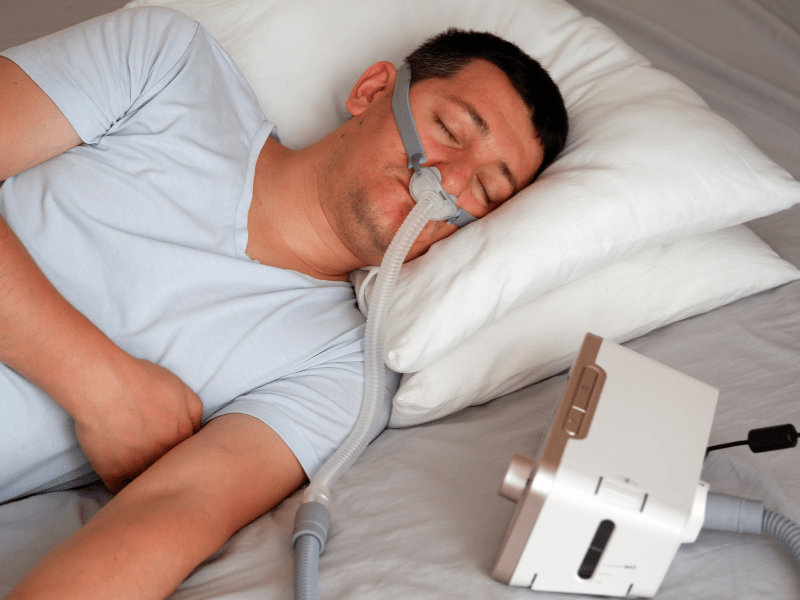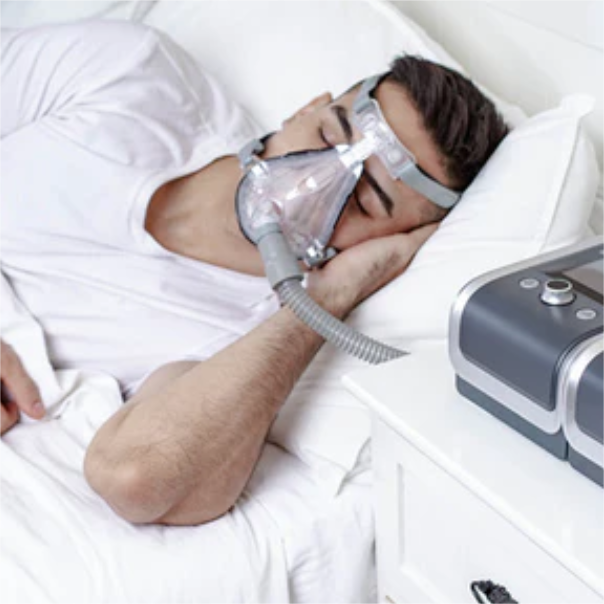Bipap vs. CPAP: Which Is the Best for Your Rest Disorder?
When browsing the complexities of rest disorders, the option between BiPAP and CPAP therapy is an essential factor to consider. Each modality supplies special advantages tailored to certain problems, yet the decision depends upon individual client requirements and comfort levels. While CPAP provides a steady airflow suitable for obstructive rest apnea, BiPAP's double pressure setups might improve comfort for those with more detailed respiratory issues. Recognizing these differences can dramatically influence treatment effectiveness, leaving one to ponder which alternative genuinely lines up with their health requirements and lifestyle.
Recognizing Rest Disorders
Rest disorders include a range of problems that interrupt normal rest patterns, affecting both the high quality and period of remainder. These disorders can show up in various types, consisting of sleep problems, sleep apnea, narcolepsy, uneasy leg syndrome, and parasomnias. Each problem presents one-of-a-kind obstacles, commonly leading to significant daytime exhaustion, cognitive disability, and psychological disturbances.
Sleeplessness is characterized by problem dropping or staying asleep, while rest apnea involves duplicated disturbances in breathing throughout rest, usually resulting in fragmented remainder. Narcolepsy, on the various other hand, is marked by too much daytime sleepiness and unexpected rest strikes. Agitated leg syndrome causes uncomfortable feelings in the legs, prompting an irrepressible impulse to relocate them, which can also impede the ability to drop off to sleep.
The effect of sleep disorders expands past individual wellness, affecting general performance, connections, and lifestyle. Recognizing the particular nature of each disorder is vital for effective medical diagnosis and treatment. As sleep health comes to be significantly recognized as a crucial element of general well-being, addressing these conditions is vital for improving both sleep high quality and day-to-day functioning.
Just How CPAP Functions
Continual Positive Respiratory Tract Pressure (CPAP) therapy is often employed as a main therapy for obstructive rest apnea (OSA) The system of CPAP entails using a maker that delivers a consistent stream of air through a mask used during sleep. This air flow maintains favorable stress in the respiratory tract, preventing the collapse or blockage of the throat that can take place throughout rest.
When a person takes in, the CPAP machine gives a constant flow of air, guaranteeing that the respiratory tract remains open - BiPAP Rental. This not just relieves the signs and symptoms of OSA, such as snoring and interrupted rest patterns, however also decreases the connected health dangers, including cardio difficulties and daytime exhaustion
The pressure setups on a CPAP machine can be tailored to meet private client needs, usually established with a rest study. Generally, CPAP treatment has been revealed to considerably boost the quality of sleep and overall health and wellness for individuals experiencing from obstructive rest apnea.
Just How BiPAP Functions
BiPAP, or Bilevel Positive Respiratory Tract Pressure, is a customized type of non-invasive air flow that is specifically helpful for individuals with problems such as intricate sleep apnea or respiratory disorders. Unlike CPAP, which delivers a constant stream of air at a single pressure, BiPAP provides two unique stress setups: a higher inspiratory pressure for inhalation and a lower expiratory pressure for exhalation. This dual-pressure strategy permits easier breathing, reducing the effort called for throughout exhalation.
The device operates with a mask fitted over the nose or mouth, linked to a machine that i thought about this generates air stress. When the person inhales, the device supplies the greater stress to help with air flow, making certain that the air passage continues to be open. Upon exhalation, the equipment instantly decreases the pressure, making it more comfy for the client to take a breath out.

Trick Differences Between BiPAP and CPAP

On the other hand, BiPAP (Bilevel Positive Air passage Stress) provides 2 different stress setups: one for inhalation and a lower one for exhalation. This double stress system permits more comfy breathing, especially for clients that have problem with exhaling against a constant pressure. BiPAP is usually suggested for patients with intricate sleep apnea, persistent obstructive pulmonary illness (COPD), or those that need added assistance during sleep.
In addition, the intricacy of BiPAP devices usually causes a greater cost and calls for more careful titration than CPAP. BiPAP Rental. Comprehending these vital differences can assist in acknowledging which gadget may be better for particular rest problems, establishing the foundation for informed treatment decisions
Selecting the Right Therapy
Just how can one establish the most suitable treatment for taking care of sleep disorders? The decision between BiPAP and CPAP treatment mainly rests on the particular features of the sleep disorder, the individual's overall wellness, and their convenience with the tool. CPAP, which provides a constant stream of air, is frequently suggested for obstructive sleep apnea (OSA) It maintains an open airway during rest, effectively protecting against hypopneas and apneas.
Alternatively, BiPAP supplies two levels of stress: one for inhalation and a lower one for exhalation. This dual stress system is useful for people with complex rest apnea or those that experience difficulty breathing out versus a continual stress. Additionally, BiPAP is commonly recommended for individuals with breathing problems, such as chronic obstructive lung disease (COPD), where varying stress settings can enhance convenience and conformity.
Eventually, a comprehensive evaluation by a rest expert, including a rest study, can aid establish which therapy lines up best with the individual's requirements. Elements such as convenience, simplicity of use, and specific medical problems need to also be taken right into consideration to optimize treatment results.
Verdict
In recap, both BiPAP and CPAP offer unique purposes in the monitoring of sleep conditions. CPAP is reliable for obstructive rest apnea via constant airflow, while BiPAP supplies double pressure setups that boost convenience for those with intricate rest apnea or respiratory system issues. The choice in between these treatments need to be directed by private requirements and conditions, requiring an extensive analysis by a rest specialist to guarantee optimum therapy end results and improved high quality of rest.

On the whole, CPAP therapy has actually been revealed to significantly boost the top quality of rest and total wellness for individuals enduring from obstructive sleep apnea.
BiPAP is typically recommended for patients with intricate sleep apnea, persistent obstructive lung disease (COPD), or those that need added assistance during rest.
CPAP is effective for obstructive rest apnea with constant airflow, while BiPAP supplies twin stress setups that enhance comfort for those with complicated rest apnea or respiratory system concerns.